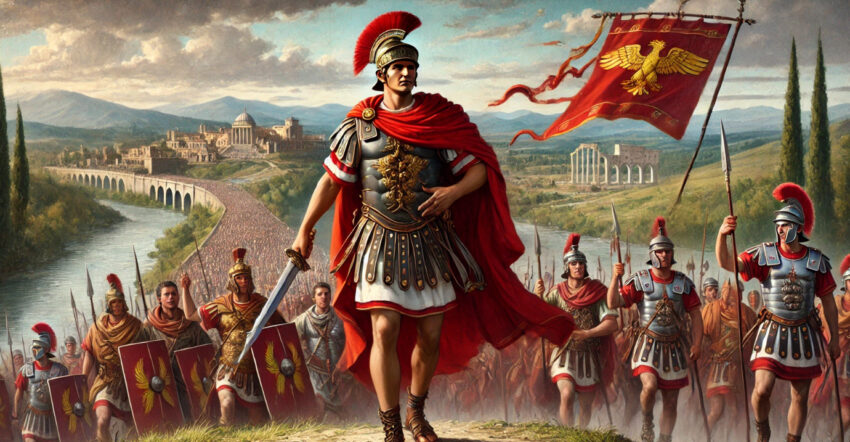The Senate’s Ultimatum and the Rubicon
In 50 BC, tensions between Julius Caesar and the Roman Senate reached a boiling point. Caesar had become one of Rome’s most successful and powerful military leaders, largely due to his campaigns in Gaul. His victories brought immense wealth and prestige, but they also made him a growing threat to the Senate’s authority, especially to key figures like Pompey, who had once been Caesar’s ally. The political landscape of Rome was divided between the populares, who supported Caesar’s populist policies, and the optimates, the traditionalist faction aligned with the Senate.
Fearful of Caesar’s influence and military power, the Senate, under the influence of Pompey and his supporters, demanded that Caesar disband his army and return to Rome as a private citizen. The Senate’s goal was clear: to strip Caesar of his command and prevent him from running for a second consulship, which would solidify his political control. They issued an ultimatum: either Caesar lay down his arms, or he would be declared an enemy of the state. The Senate’s ultimatum placed Caesar in a precarious position. If he complied, he would face likely prosecution for his actions as consul and lose the protection that his army afforded him.
Caesar’s response was both bold and calculated. On January 10, 49 BC, Caesar crossed the Rubicon River, the boundary between his province of Cisalpine Gaul and Italy proper. By doing so, he committed an act of war against the Roman Senate. According to historical accounts, Caesar famously declared, “Alea iacta est” – “The die is cast” – signaling that there was no turning back. This moment marked the beginning of a civil war that would determine the fate of the Roman Republic.
Caesar’s crossing of the Rubicon was not just a military maneuver; it was a declaration that he would not submit to the Senate’s authority. The Senate’s ultimatum, meant to diminish Caesar’s power, had instead provoked a direct confrontation. With his loyal legion behind him, Caesar marched south, knowing that his political survival and future hinged on victory in the inevitable conflict to come.
 |
 |


